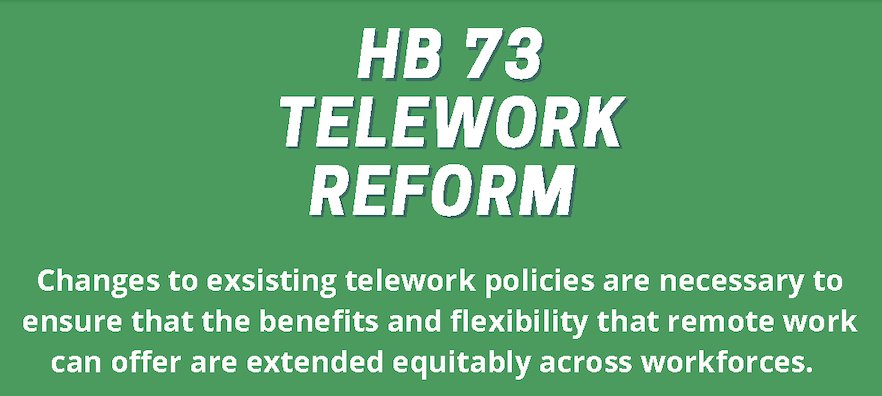With the typical AFSCME spirit of “it’s not over until it’s over,” union-supported legislation to create a statewide Telework policy for both the public and private sectors passed the General Assembly as the clock approached midnight on Monday, April 12 – the last day of the legislative session.
While the House of Delegates had passed legislation much earlier in the session, the bill lagged in the Senate as other issues received greater prioritization from Senate Leadership. AFSCME members and staff kept pushing, repeatedly requesting a bill hearing and lobbying Senate Finance Committee members to support and pass out the bill. The Friday before session ended the bill made it to the Senate Floor Calendar, yet that was no guarantee of passage. Constant communication with Senators helped break the jam, and when it did it passed unanimously!
The COVID-19 pandemic has exposed the positives, and negatives, of telework. Many AFSCME members have thrived with the ability to telework, while others have been challenged by equipment needs, broadband access, childcare access and work schedule restrictions.
Read the Final Text of HB73 Here
House Bill 73 establishes an Office of Telework Assistance to develop and post best practices for telework policies and to assist businesses with implementing telework policies; including awarding grants to businesses to help cover hardware and software purchases. In state government, the bill requires public higher education institutions and each of the three branches of government to establish telework policies. It also requires that each teleworking employee in a state unit receive cybersecurity guidelines and requires that each state unit must annually report to the Senate Budget and Tax Committee and the House Appropriations Committee the number of employees who are eligible and participating in the telework program.
These policies must be negotiated beginning July 1, 2022; however, the Department of Budget & Management has already reached out to AFSCME to begin discussions, despite the bill not yet becoming law.

